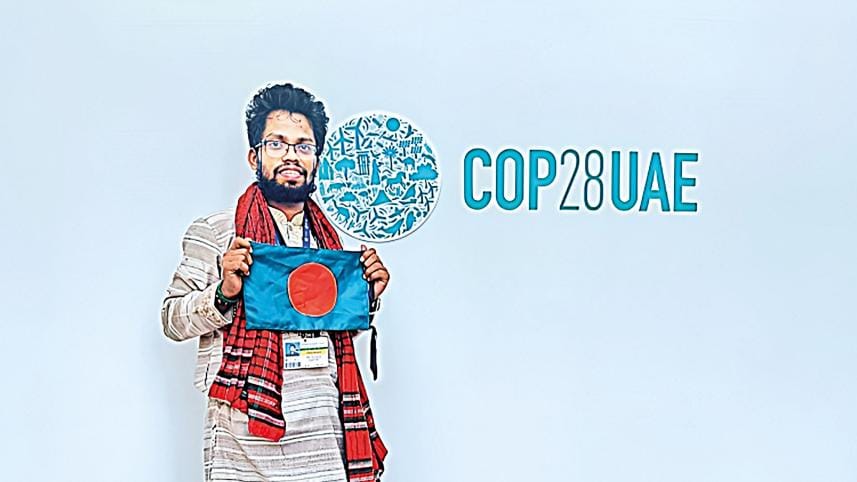Youth-led Climate Action Takes Center Stage at COP28

The Conference of the Parties (COP) annually unfolds as a critical juncture where global leaders confront the specter of climate injustice, uniting to address the escalating climate crisis. My odyssey through three COPs has been a revelation, exposing the intricate dance and deadlock of negotiations, and dramatic decisions, spotlighting community resilience, and emphasizing the transformative power of collective action.
Bridging the Gap: From Activism to Negotiations Table
My journey at COP28 spanned various dimensions—from side events, bilateral meetings, protests, and movements, to media engagement, and the negotiations table. In Dubai, I had the privilege of joining dinner meetings with world leaders like Prime Minister Mark Rutte of the Netherlands and Prime Minister Gilmar Pisas of Curaçao, showcasing a commitment to inclusivity. Rutte's emphasis on involving young voices at the negotiation table resonated as a call to empower the next generation.
Children and young people, often excluded, play a crucial role in bridging gaps, especially in the aftermath of climate disasters. As a speaker, joining the "Youth & Gender Sensitive Climate Finance for Locally Led Adaptation" panel hosted by the We Are Tomorrow Partnership, I shared stories of Bangladesh building community resilience through local leadership. I also presented research findings jointly conducted in Bangladesh, Nigeria, and Guatemala by my young fellow, Population Council & Women Deliver, on the impact of Climate Change on adolescents, focusing on its special effects on health at the Children & Youth Pavilion.
Inclusivity and Urgency: A Pledge for a Just Future
The 1.5°C limit is not just a target but a survival issue. Despite challenges highlighted by the insufficient Loss and Damage Fund, vague COP28 outcomes, and gaps in the Global Goal on Adaptation, the urgency for immediate emission cuts, binding commitments, and justice for the most affected is imperative.
Criticism surrounds the COP28 text's lack of emphasis on financial commitments, raising doubts about the adequacy of support for vulnerable countries in their transition away from fossil fuels. Furthermore, the weak language on timelines targets for adaptation and adds another layer of concern.
The day-one announcement of operationalizing a $400 million Loss and Damage Fund—to compensate poor states for real losses incurred due to climate change impacts, without addressing human rights—proved inadequate by the end of COP28, revealing the intricate challenges of addressing real-world impacts without a human rights lens.
The summit faces scrutiny for its loopholes, lack of clear timelines, and the undeniable influence of fossil fuel lobbyists. With 2,456 lobbyists present, questions arise about the integrity of the negotiations and whether compromised outcomes truly serve the planet's best interests. COP28 President Dr. Sultan Al Jaber failed to deliver the ambitious 1.5°C target, leaving the deal laden with loopholes and lacking essential timelines and support. This raises questions about the effectiveness of leadership in achieving the summit's objectives.

Despite gaps, there is optimism in recognizing the end of the fossil fuel era. The call for financial institutions and investors to increase investments in renewable energy signifies a potential turning point in divesting from fossil fuel companies.
In conclusion, COP28 in Dubai stands as a resounding call to move beyond conference attendance, emphasizing the imperative to forge connections, build enduring bridges, generate political momentum, and amplify the voices of those profoundly impacted by the climate crisis. The summit provided a strong signal that youth are at the forefront of urgent climate action, and the fossil fuel era is coming to an end.
Sohanur Rahman is a Young Climate Justice Advocate and Climate Champion at Save the Children in Bangladesh.



 For all latest news, follow The Daily Star's Google News channel.
For all latest news, follow The Daily Star's Google News channel.
Comments